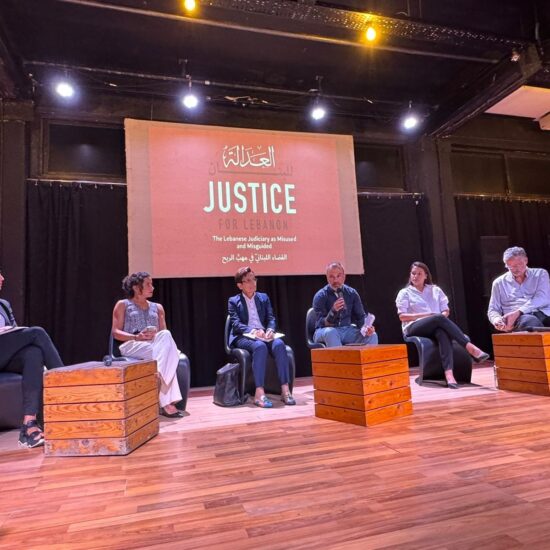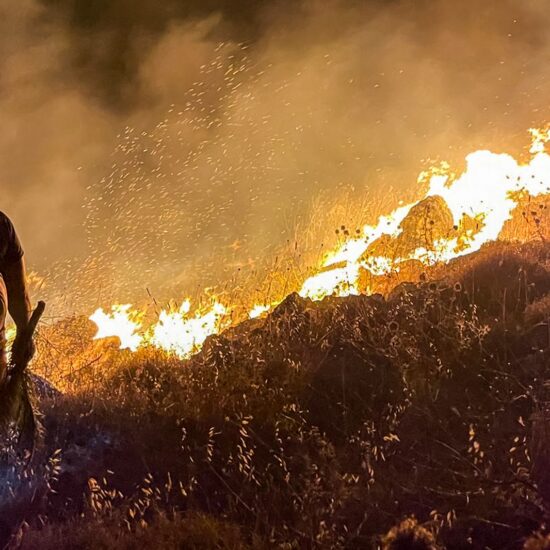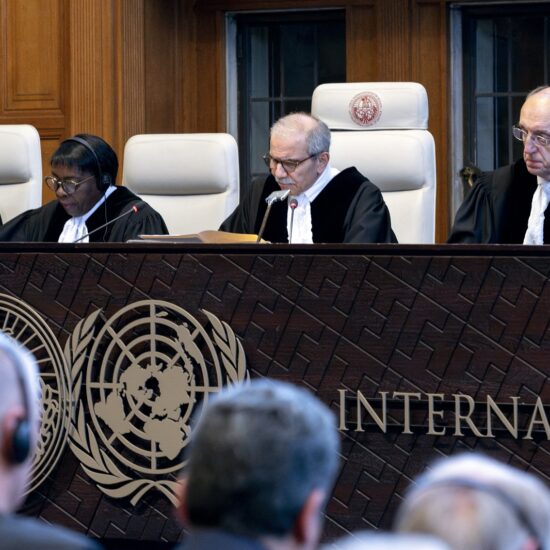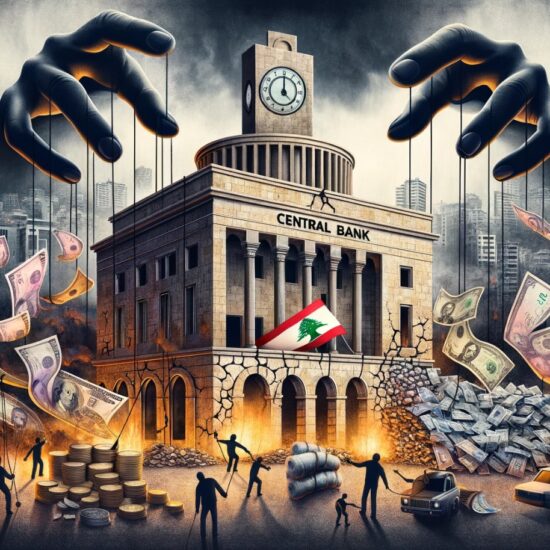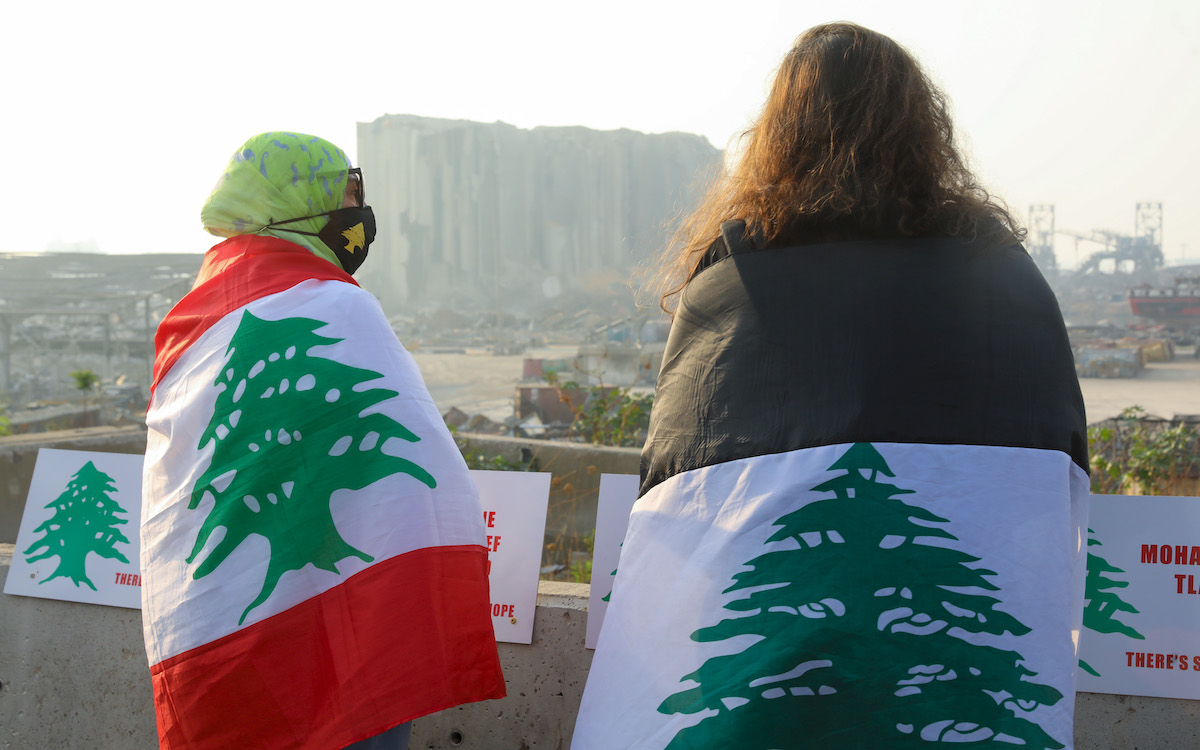
Opening up her book All She Lost, Lebanese journalist Dalal Mawad astutely remarks, “Most Lebanese have a story to tell about the explosion in Beirut on 4 August 2020; some are just more painful than others.”
The book unravels a post-August 4, 2020 world forever altered by the cataclysmic blast at the Beirut port, claiming the lives of more than 200 people and leaving countless others wounded and scarred.
An accomplished journalist, Mawad boasts an extensive career, after having served as a senior Middle East and North Africa video producer and correspondent with the Associated Press, she is currently affiliated with CNN. While she herself escaped physical harm, the emotional wounds she experienced motivated her to embark on a profound writing journey.
Published by the British Bloomsbury publishing house, All She Lost is set to be released on August 3. Within its pages, Mawad shares the heartrending stories of women who faced irrevocable losses, encompassing the physical, financial, familial, emotional, and mental aspects of their lives. The narratives include a diverse array of women, from Lebanese to refugees, and migrant domestic workers, transcending boundaries of skin color, race, and class.
Initially, Mawad did not intend for her book to exclusively focus on women. However, as she progressed with her interviews, she discovered that women emerged as the central storytellers.
‘Women have a unique ability to share their stories, using clever anecdotes to convey their profound messages,” Mawad told NOW.
Doomsday
Since the start of the domestic investigation into the blast three years ago, progress has been completely hindered due to a series of legal obstacles put forth by those accused in the crime. Primarily responsible for this lack of development are the attempts from political figures to substitute Judge Tarek Bitar from his position as lead investigator, and to obstruct the investigation through delays and legal knots.
Various international organizations, such as Human Rights Watch, Amnesty International, Legal Action Worldwide, Legal Agenda, and the International Commission of Jurists have taken note of how Lebanese authorities have been protecting politicians and officials that are allegedly involved in the explosion from being questioned or arrested. It has also been documented that flaws within the domestic investigation range from clear-cut political interference to a disregard for fair trial standards and due process violations.
However, despite the £261 million that was donated by international groups and £349 million pledged to the 3RF that Lebanon received in aid, women were largely left out.
The findings from research conducted by SEEDS, an organization based in Beirut that receives support from the Women’s Peace and Humanitarian Fund, Germany, and UN Women Lebanon illustrate that the relief efforts which were undertaken primarily by non-governmental organizations (NGOs) and Civil Society Organisations (CSOs) overlooked gender considerations.
The book also talks about the culture of impunity, which entraps women in an endless cycle of violence with no chance of retribution. Women, therefore, feel completely powerless when it comes to getting justice.
In light of the destruction caused by the explosion, the suffering experienced by women was especially hard to bear. Nevertheless, their plight was further compounded due to a lack of access to adequate aid and assistance.
Syrian women and migrant domestic workers who had been displaced or were working under the Kafala system encountered extreme prejudice and inequality when accessing aid. This sometimes resulted in their homes being taken away, as well as the loss of important documentation, leaving them without a place to live and with no way to return to their home countries.
Abused and neglected
According to Mawad, many of the women she interviewed demonstrated a natural talent for storytelling and were seeking platforms to share their experiences. She highlights a concerning reality in this region, where women in Lebanon or MENA are often excluded from shaping historical narratives, with their stories overlooked.
In her forthcoming book, Mawad delves into the legal hurdles faced by Lebanese women across different sects. For instance, she mentions how Catholic Maronite widows must secure a male custodian from their husband’s family to have any say in decisions concerning their children. Moreover, many of the female interviewees have encountered domestic abuse without adequate legal protection. The battles for children’s custody and divorce often prove arduous, requiring women to exert substantial effort to prevail.
An intriguing aspect of the book revolves around Moawad’s poignant observation that “women suffer silently.”
This phenomenon finds stark expression in the alarming rise of femicides, with cases reported regularly, depicting women tragically losing their lives at the hands of their husbands. In some instances, abuse remains concealed for extended periods, with women being urged to stay silent. Excuses are sometimes made for the perpetrators, such as in the Chabtine, Batroun case, where a husband with Alzheimer’s was excused for fatally shooting his wife, Eline Sassine, at 2 a.m.
“The book also talks about the culture of impunity, which entraps women in an endless cycle of violence with no chance of retribution,” Mawad said. “Women, therefore, feel completely powerless when it comes to getting justice.”
Breaking the cycle
Mawad’s inspiration, which tragically epitomizes a culture of violence and impunity, stretches back as far as 1957.
Her grandmother’s tale is another heart-wrenching one marked by grief and loss. In 1957, a feud between family clans over personal and political matters resulted in the murder of her paternal grandfather in the village of Zgharta as part of the revenge killings that ensued over the course of the next few months following the Miziara massacre despite her grandfather having had no involvement in the massacre.
It is vital for future generations to know what happened, without censorship, and not solely from the perspective of politicians and historians but from ordinary people.
Growing up, Mawad observed how her grandmother silently endured the pain inflicted upon her, without ever expressing her suffering. Eventually, her grandmother passed away, carrying her sorrow to the grave.
Mawad’s account reveals further episodes of violence stemming from the civil war, sexual abuse, and economic disparities.
“Documentation is also a step forward towards accountability,” the writer noted. “Documenting our collective memoir is crucial for any reconciliation process, truth-seeking, or coming to terms with the past.”
She points out that such documentation was lacking during the civil war, impeding progress towards healing and moving forward.
“‘It is vital for future generations to know what happened, without censorship, and not solely from the perspective of politicians and historians but from ordinary people,” Mawad emphasized.
Currently residing in Paris, Mawad left Lebanon shortly after the explosion, seeking a better life for her daughter and protecting her from the cycles of abuse that she and other women had endured.
For her and many other Lebanese, the aftermath of the explosion has irreversibly transformed life in Lebanon after 2020, altering countless lives forever. In her book All She Lost centered on women and their pain, Mawad uncovers what Lebanese history failed to reveal and what society tried to conceal – the enduring suffering of women, and demands that their stories be heard.
Dana Hourany is a multimedia journalist with @NOW_leb. She is on Instagram @danahourany and Twitter @danahourany.



